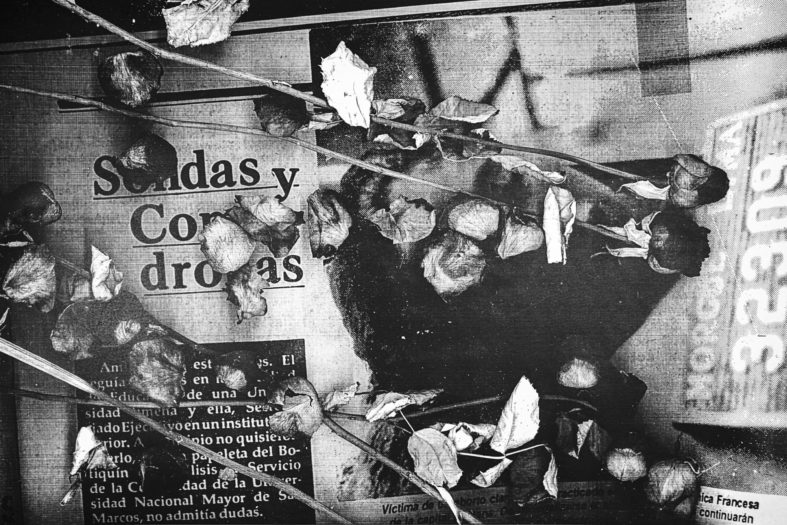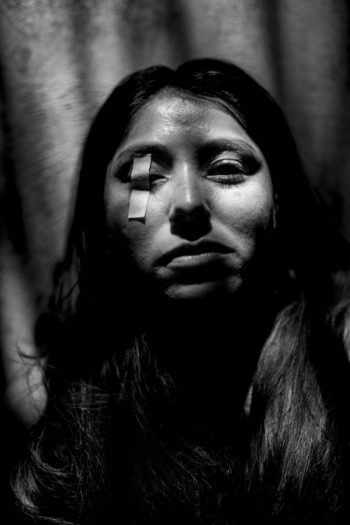Tarrah Krajnak
El Jardín de Senderos Que Se Bifurcan
Named after a Jorge Luis Borges story by the same title, my work El Jardín de Senderos Que Se Bifurcan explores the process of tracing origins amidst contradictory familial narratives. Indigenous to Peru and born into orphanhood I was adopted into a working-class transracial family from the American coal country. This early experience profoundly shaped my relationship to origins, race, genealogy, ancestral exile, and the way these constructs may be held in the body rather than written into the archive. In this series, I set out not to recover some stable authentic identity hidden by the circumstances of my birth and adoption, but rather to build a psychic history, to imagine lineages, to invent mothers, and to resurrect ancestors in an effort to understand my place within the larger
*****The Center for Documentary Studies awarded this project—–2020 Lange-Taylor Prize****
Tarrah Krajnak was born in Lima, Peru in 1979. She is currently an Associate Professor of Art at Pitzer
College in Claremont, CA. Krajnak was awarded the 2020 Dorothea Lange-Paul Taylor Prize by the
Center for Documentary Studies for El Jardín De Senderos Que Se Bifurcan. A monograph of the work
is forthcoming with DAIS books. Her work Master Rituals is shortlisted for the forthcoming Arles
2021 Louis Roederer Discovery Award. She is a 2020 Lightwork AIR recipient. She has exhibited at
as-is Los Angeles, Honor Fraser Gallery, Houston Center for Photography, Filter Photo Chicago,
SUR Biennial, Silver Eye Center for Photography, Center for Photography Woodstock, SF
Camerawork, Philadelphia Photographic Arts Center, The National Museum of Women in the Arts,
Photo Madrid, Photo London, Belfast Photography Festival, and Unseen Amsterdam. Her work has
been published in the LA Review of Books, Nueva Luz, and Strange Fire Collective. She received
grants from the National Museum of Women in the Arts, and from the Harpo Foundation. Her work
has been reviewed in Glasstire, Artforum, and Contemporary Review Los Angeles.
ARTIST STATEMENT
Named after a Jorge Luis Borges story by the same title, my work El Jardín de Senderos Que Se
Bifurcan explores the process of tracing origins amidst contradictory familial narratives. Indigenous to
Peru and born into orphanhood I was adopted into a working-class transracial family from the
American coal country. This early experience profoundly shaped my relationship to origins, race,
genealogy, ancestral exile, and the way these constructs may be held in the body rather than written
into the archive. In this series, I set out not to recover some stable authentic identity hidden by the
circumstances of my birth and adoption, but rather to build a psychic history, to imagine lineages, to
invent mothers, and to resurrect ancestors in an effort to understand my place within the larger
political, social, and historical narratives of my birthplace–Lima, Peru circa 1979.





